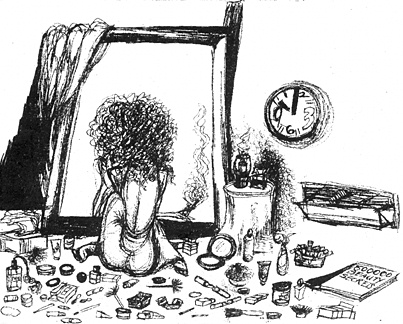All Nonfiction
- Bullying
- Books
- Academic
- Author Interviews
- Celebrity interviews
- College Articles
- College Essays
- Educator of the Year
- Heroes
- Interviews
- Memoir
- Personal Experience
- Sports
- Travel & Culture
All Opinions
- Bullying
- Current Events / Politics
- Discrimination
- Drugs / Alcohol / Smoking
- Entertainment / Celebrities
- Environment
- Love / Relationships
- Movies / Music / TV
- Pop Culture / Trends
- School / College
- Social Issues / Civics
- Spirituality / Religion
- Sports / Hobbies
All Hot Topics
- Bullying
- Community Service
- Environment
- Health
- Letters to the Editor
- Pride & Prejudice
- What Matters
- Back
Summer Guide
- Program Links
- Program Reviews
- Back
College Guide
- College Links
- College Reviews
- College Essays
- College Articles
- Back
Feedback on "Dear Jane" by Alice Deng
“Dear Jane,” by Alice Deng paints the story of two young girls yearning to be beautiful, admired, and provocative adults. It describes memories of their dress up and pretending which resonates with girls going through or remembering similar fantasies. “We ate pizza with our pinkies raised,” she writes, summarizing their harmless dreaming. As it goes on, Ms. Deng steps back from child like play and describes a darker layer of this tale: how the girls criticize their bodies and what they are not, rather than what they are. In only twenty-three lines, Ms. Deng creates a coming of age story that burns into your mind like a branding rod.
The poem is incredibly significant because of it’s ability to form a bond with the reader. Her descriptions of wearing make-up and pretending to be high ladies reminded me of games and wishes that I had when I was younger. As the poem gets darker, going into how Jane scrutinizes her every flaw, I was terrified for her, not of her fat but of what she might do to herself. The narration itself also makes commentary on her opinions of what “beauty” is. For example, when she says, “I’m going to miss that little piece of Jane/ when it’s gone,” the narrator leaves you with both a thought to mull over and a cliffhanger to contemplate. This poem speaks with frugal words.

Similar Articles
JOIN THE DISCUSSION
This article has 0 comments.
